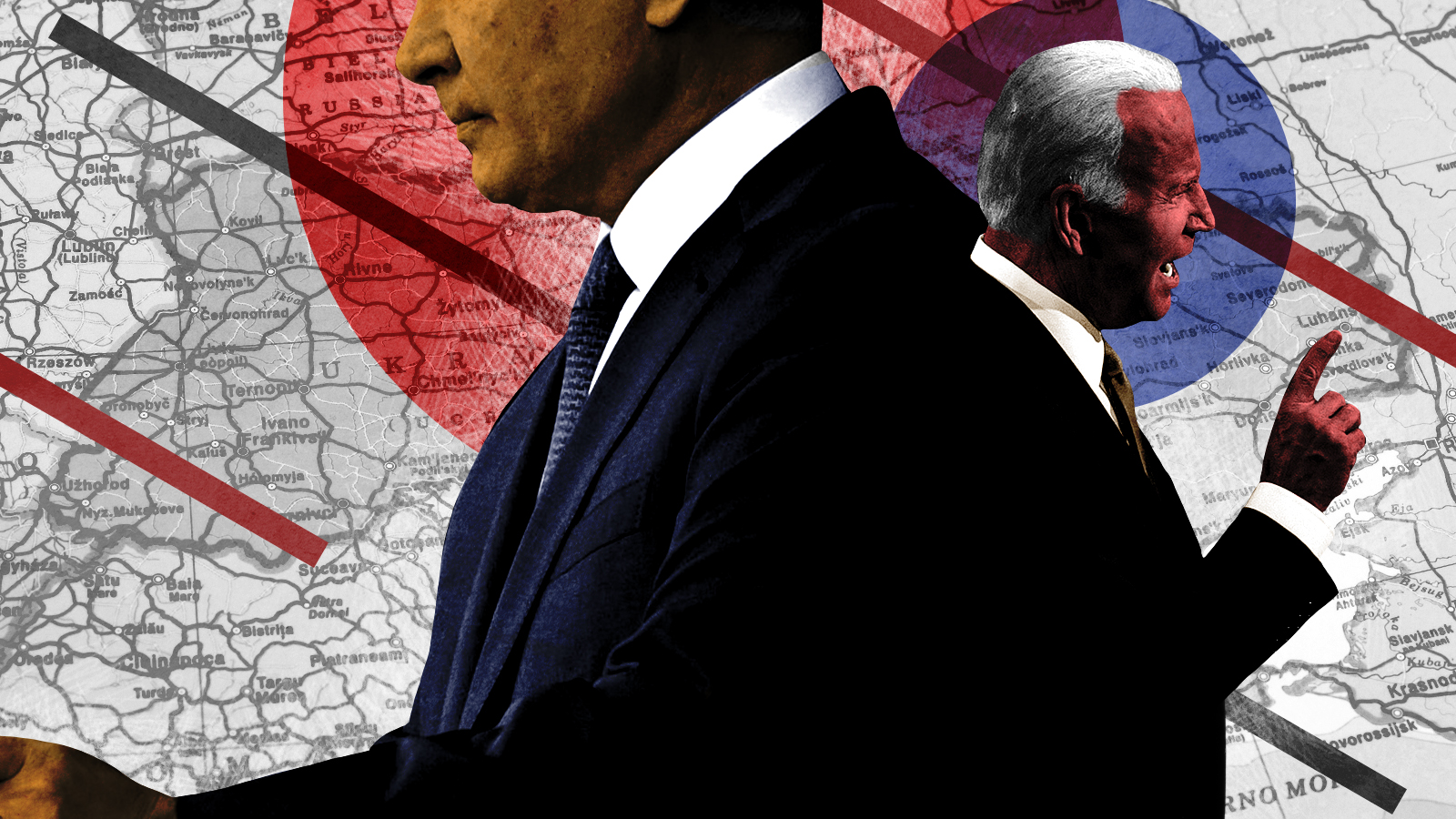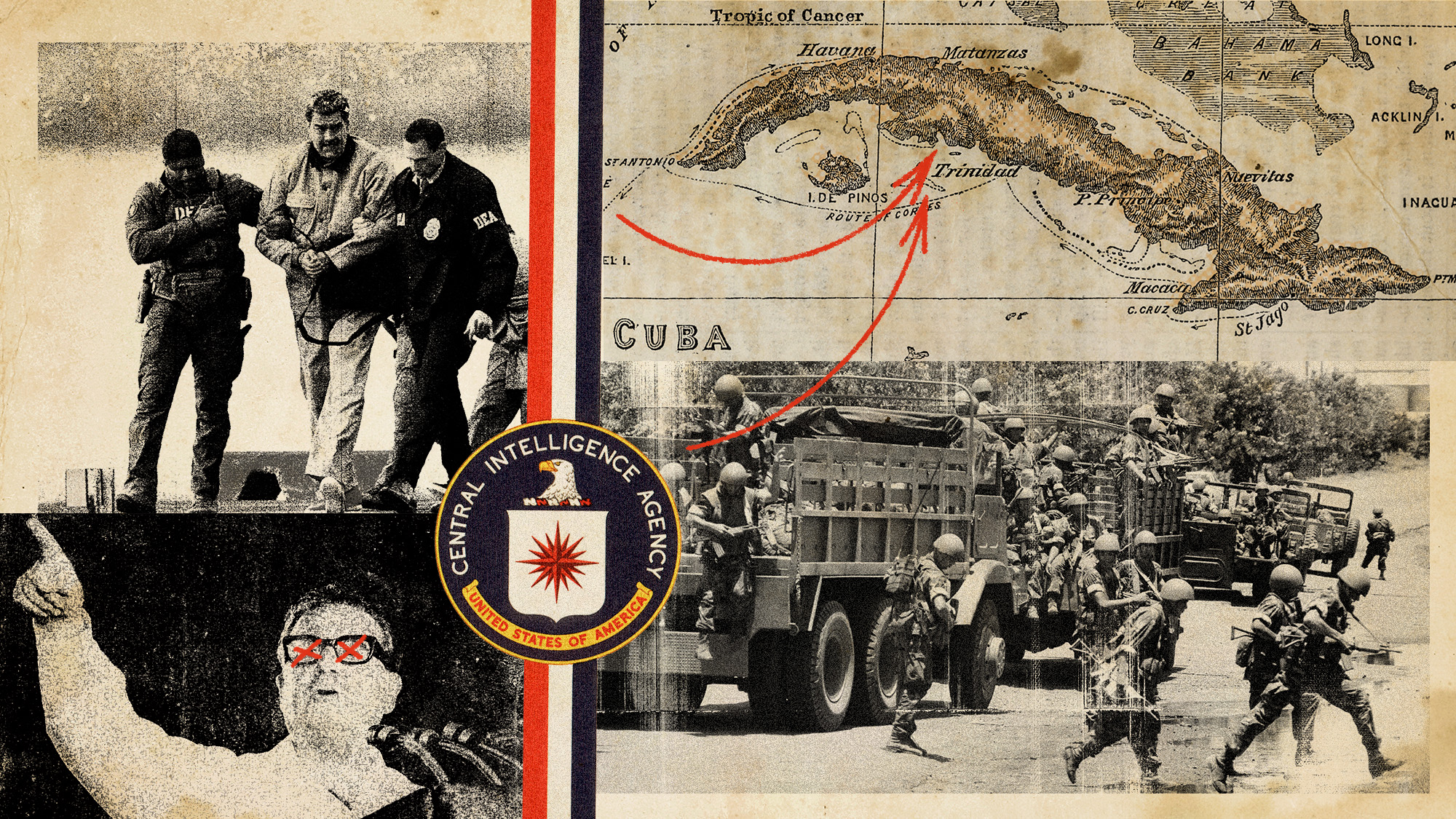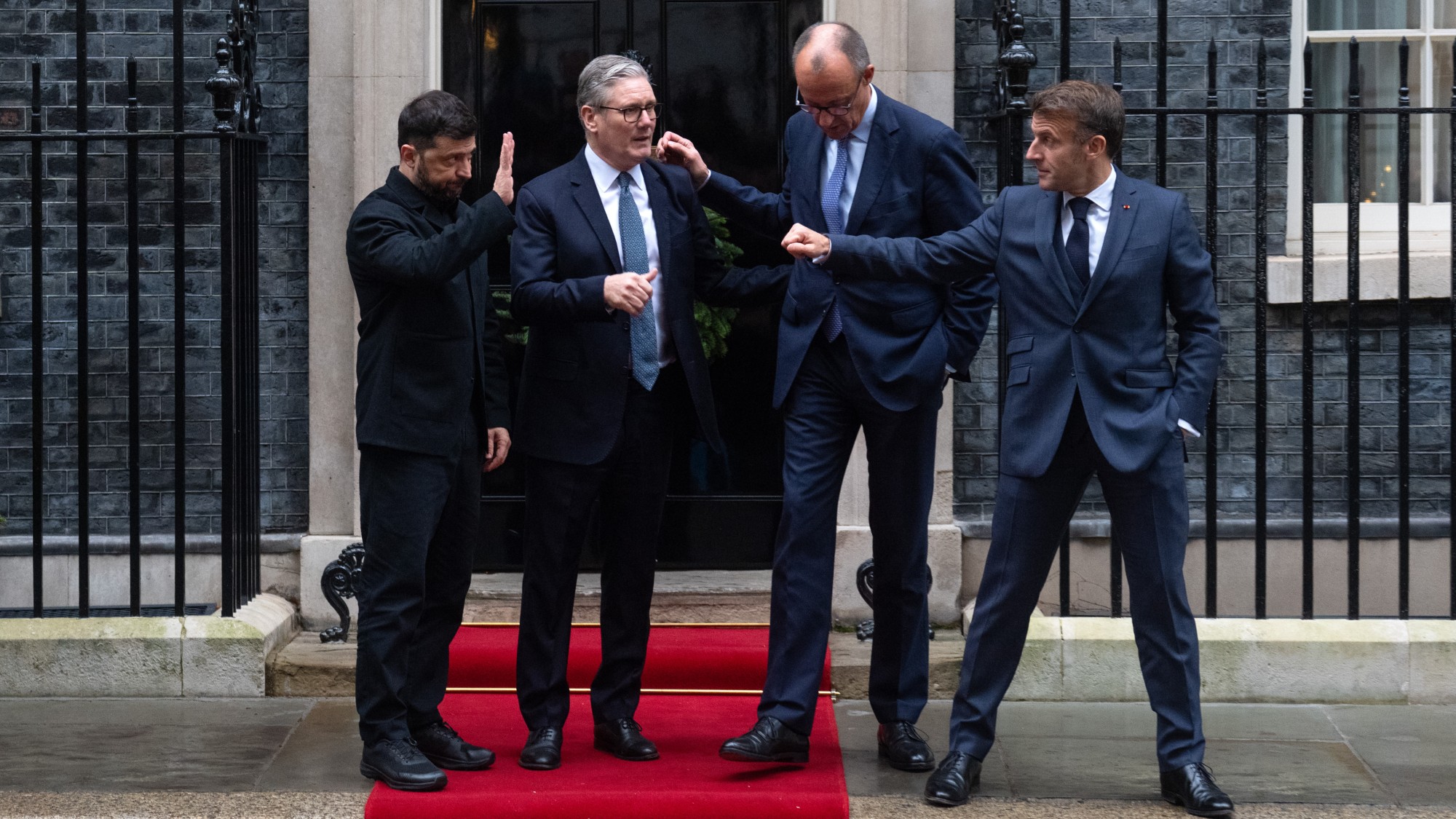Putin calls America's bluff on Ukraine
Now the hard choices begin


A free daily email with the biggest news stories of the day – and the best features from TheWeek.com
You are now subscribed
Your newsletter sign-up was successful
Russia has amassed significant forces along the border of Ukraine. Talks between Russia and NATO appear to have broken down. Members of Washington's foreign policy establishment are beginning to suggest the need to respond to any Russian military moves against Ukraine with a strong show of force.
How did we get here, seemingly on track toward either direct military confrontation with a nuclear-armed state nearly 5,000 miles from American shores, or poised to back down and retreat in the face of a frontal challenge to a military alliance led by the United States?
The answer is that we got here by bluffing — and the evident decision of Russian President Vladimir Putin to call our bluff. One possible response to this unhappy situation is to continue bluffing in the hopes that Putin will eventually blink. The other, far more reasonable path is to reassess the decisions that got us here in the first place and move forward with less unsustainable hubris.
The Week
Escape your echo chamber. Get the facts behind the news, plus analysis from multiple perspectives.

Sign up for The Week's Free Newsletters
From our morning news briefing to a weekly Good News Newsletter, get the best of The Week delivered directly to your inbox.
From our morning news briefing to a weekly Good News Newsletter, get the best of The Week delivered directly to your inbox.
Once the Cold War had drawn to a close, the United States began to extend formal and informal security guarantees to far-flung places around the globe. These came on top of older guarantees that originated during the West's decades-long confrontation with the Soviet Union and its numerous satellite and client states.
The U.S. was already formally committed to defending Western Europe through NATO, as well as Japan and South Korea. Our arrangement with Taiwan was less explicit, but everyone understood that we would be unlikely to turn a blind eye to any Chinese move to invade the island.
America's reaction to Iraq's invasion of neighboring Kuwait just months prior to the final dissolution of the USSR demonstrated that the U.S. intended to use its military and diplomatic clout to prevent the outbreak of cross-border military conflict in the Middle East — and to punish governments that violated such strictures.
Then, later in the 1990s, came the beginning of NATO's expansion eastward and its projection of power outside its own borders into the Balkans to halt horrible bloodletting in the states of the former Yugoslavia. The spectacular terrorist attacks of 9/11, planned by Al Qaeda in Taliban-controlled Afghanistan, prompted the U.S. and its NATO allies to project power even farther, now all the way to South Asia. The subsequent invasion and occupation of Iraq, undertaken by the United States and select allies apart from NATO, was sold as necessary to eliminate an unacceptable threat to America and its allies in the Middle East. Eight years later, NATO projected power across the Mediterranean Sea, toppling the government of Moammar Gadhafi in Libya.
A free daily email with the biggest news stories of the day – and the best features from TheWeek.com
Each move was an extension of American military reach, and many of them signaled the transformation of NATO from a defensive alliance into an occasionally offensive one. With each step, the U.S. and its allies demonstrated a willingness to use military force to challenge and defeat vastly weaker powers across the globe. In doing so, we began constructing what looked more than a little like a rudimentary worldwide police force with the United States at its head.
But there were undeniable downsides.
For one thing, a foreign policy aimed at punishing "evildoers," to invoke former President George W. Bush's language after 9/11, left us with a series of messes on our hands. We became directly responsible for security in places we invaded. And instead of those countries learning to take care of themselves over time, they became dependents, forcing the United States and our allies to extend open-ended internal and external security commitments, with the only alternative being eventual collapse into civil war or dictatorship. We've seen different versions of this scenario unfold on varying time scales in Iraq, Libya, and Afghanistan over the past two decades.
But this isn't the only, or even the worst, drawback to America's approach to foreign policy since the end of the Cold War.
We have been able to fight a series of small (if intractable) wars around the world because, in each case, our opponent has been vastly weaker than we are. But we have also extended implicit security guarantees to places where a strong or rising regional power has competing interests. And we've handled such situations by acting as if we're willing to defend certain countries against formidable military threats when we've never really been prepared to do so.
This approach to conducting foreign policy worked well enough so long as no one called our bluff. Our willingness and ability to project power to the Middle East, South Asia, and North Africa served as supposed evidence of our resolve everywhere.
But our geopolitical rivals are no longer prepared to defer to us in all cases. Putin, for example, looks ready to test the proposition that Russia has far more at stake in its near abroad (in Ukraine as well as in Georgia and Belarus) than we do — and the outcome is quite likely to be decided in his favor. A recent YouGov poll commissioned by the Charles Koch Institute, for example, shows that just 27 percent of Americans would support going to war with Russia if it invades Ukraine. It's not even clear that the European Union would be capable of imposing painful new economic sanctions on Russia in retaliation to an invasion — all of which means Putin may well prevail in his bid to stop NATO expansion in its tracks.
This hasn't prevented some analysts from advocating we extend the bluff further for fear that backing down would embolden China to launch its own test of our willingness to defend Taiwan against an invasion. (Some have even gone so far as to suggest, against all plausibility, that allowing Russia to invade Ukraine without military consequence would destroy NATO altogether and put us on a path to world war.) It would be better to face up honestly to the consequences of bluffing and pull back to lines we really are prepared to defend with the threat of war, and make this resolve abundantly clear to our geopolitical rivals.
We can't guarantee security in Eastern Europe and the Middle East and North Africa and South Asia and East and Southeast Asia. But we can use our still-formidable military and economic might to influence the course of events in select places. What should those places be? The U.S. has done a lot of things around the world since the end of the Cold War. But we haven't made enough of the hard choices that any finite power needs to make.
The crisis in Ukraine should be treated as an opportunity to begin that painful but necessary process of choosing our battles more wisely.
Damon Linker is a senior correspondent at TheWeek.com. He is also a former contributing editor at The New Republic and the author of The Theocons and The Religious Test.
-
 The ‘ravenous’ demand for Cornish minerals
The ‘ravenous’ demand for Cornish mineralsUnder the Radar Growing need for critical minerals to power tech has intensified ‘appetite’ for lithium, which could be a ‘huge boon’ for local economy
-
 Why are election experts taking Trump’s midterm threats seriously?
Why are election experts taking Trump’s midterm threats seriously?IN THE SPOTLIGHT As the president muses about polling place deployments and a centralized electoral system aimed at one-party control, lawmakers are taking this administration at its word
-
 ‘Restaurateurs have become millionaires’
‘Restaurateurs have become millionaires’Instant Opinion Opinion, comment and editorials of the day
-
 ‘The mark’s significance is psychological, if that’
‘The mark’s significance is psychological, if that’Instant Opinion Opinion, comment and editorials of the day
-
 A running list of the international figures Donald Trump has pardoned
A running list of the international figures Donald Trump has pardonedin depth The president has grown bolder in flexing executive clemency powers beyond national borders
-
 A running list of US interventions in Latin America and the Caribbean after World War II
A running list of US interventions in Latin America and the Caribbean after World War IIin depth Nicolás Maduro isn’t the first regional leader to be toppled directly or indirectly by the US
-
 The billionaires’ wealth tax: a catastrophe for California?
The billionaires’ wealth tax: a catastrophe for California?Talking Point Peter Thiel and Larry Page preparing to change state residency
-
 Bari Weiss’ ‘60 Minutes’ scandal is about more than one report
Bari Weiss’ ‘60 Minutes’ scandal is about more than one reportIN THE SPOTLIGHT By blocking an approved segment on a controversial prison holding US deportees in El Salvador, the editor-in-chief of CBS News has become the main story
-
 Who is paying for Europe’s €90bn Ukraine loan?
Who is paying for Europe’s €90bn Ukraine loan?Today’s Big Question Kyiv secures crucial funding but the EU ‘blinked’ at the chance to strike a bold blow against Russia
-
 Are Donald Trump’s peace deals unraveling?
Are Donald Trump’s peace deals unraveling?Today’s Big Question Violence flares where the president claimed success
-
 Will there be peace before Christmas in Ukraine?
Will there be peace before Christmas in Ukraine?Today's Big Question Discussions over the weekend could see a unified set of proposals from EU, UK and US to present to Moscow
